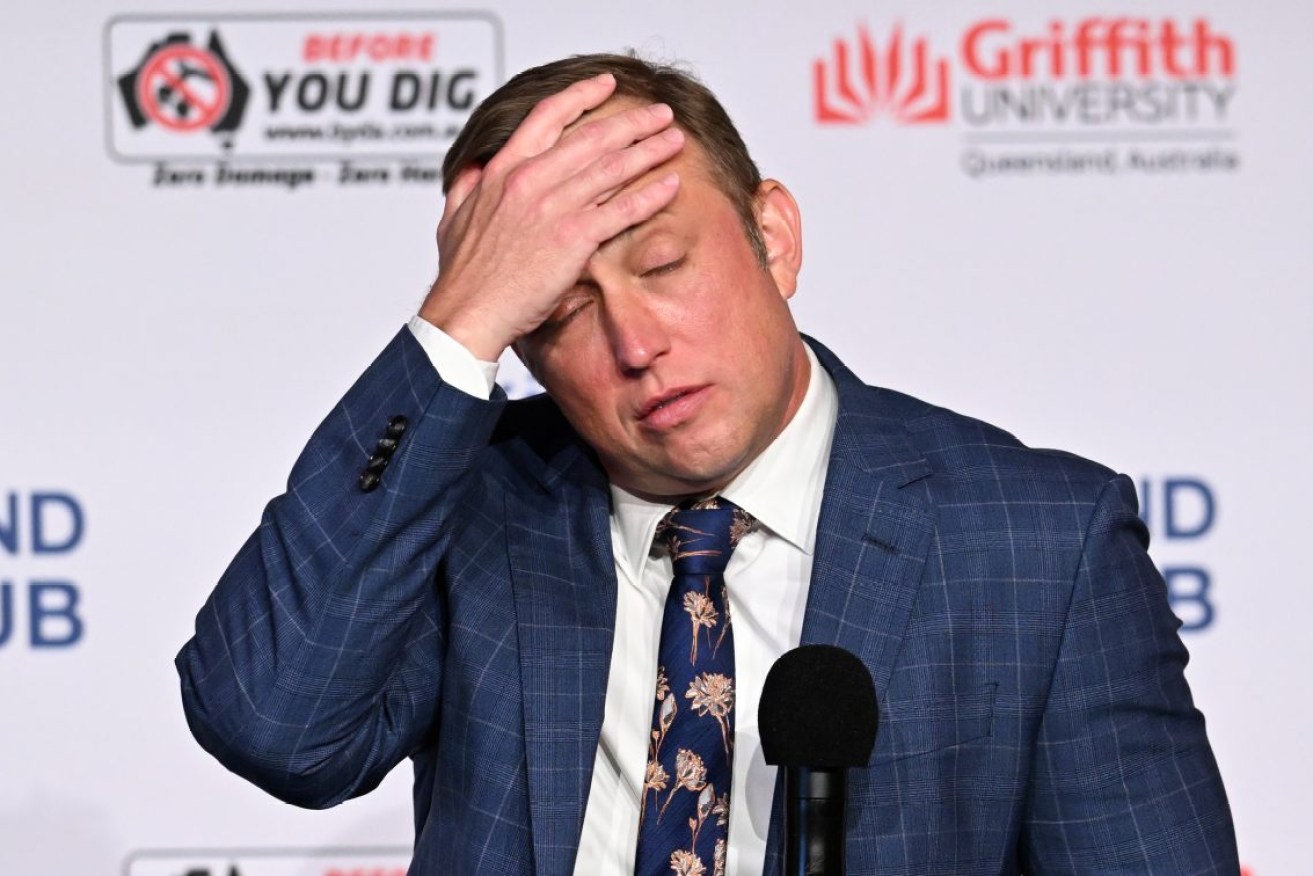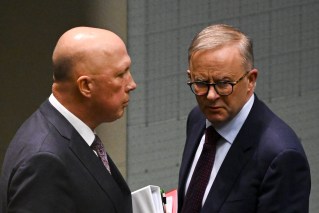Fare enough: Playing Santa to commuters is a sure sign Miles’ ship has sailed
Premier Steven Miles’ bottomless bag of pre-election goodies has now conjured up 50 cent commutes on our trains, buses and ferries – but it will only have one outcome, writes David Fagan


Queensland Premier Steven Miles is seen giving a speech to the Queensland Media Club at the Brisbane Convention . (AAP Image/Darren England)
Anyone in business knows one fatal truth about discounts – once given they are almost impossible to reverse.
And that will be the case with Stephen Miles’ election year clearout of public transport tickets. Success or not, it will be very difficult to take fares back to anywhere near their current level in 2025.
Almost certainly, this does not trouble the Premier. He knows he is on a rails run to an election loss in October and has wheeled out the cheap tickets offer in hope it might save some seats, maybe even his government.
It almost certainly won’t. But a lot can go right or wrong in the five months before Queenslanders vote.
So what will happen with the discount offer which reduces every bus, train, ferry and light rail fare to 50 cents?
If it succeeds and thousands are persuaded off busy roads, then there won’t be enough buses or trains. They are already full at peak hour. Economics 101: you can’t increase demand for a product without increasing its supply (unless you want to jack up prices).
Logically, that will drive commuters back to their cars where they can travel comfortably and reliably.
If it fails and commuters stick with their current habits, then the government will have handed over $300 million to already subsidised public transport users and then leave it to whoever follows to fix a fare system that is not just unviable but unfair to those who don’t or can’t use it.
I’ve written before about the success stories of Brisbane over the past few decades. And I would count the extension of the rail network, the bus tunnels that speed up trips and the ferry system high among them. This is an achievement to be proud of.
But it does come at a cost. Public transport commuters meet part of that cost but approximately two-thirds of the operating and capital costs are met from the public purse.
While it might be appealing to cut fares for commuters in the short term, it does nothing for them longterm to reduce the means of funding better services. Cost alone will not increase public transport usage. There are also issues of frequency and convenience which need addressing.
But how much do we care about the long term when there are short-term imperatives for every government – like getting re-elected?
This looks more like a thought bubble than a policy but we are living in a period of thought bubbles.
Fortunately, not all of them fly before being pierced. One of the more bizarre which rose and fell without attention was the suggestion of last year to rename the suburb Woolloongabba.
It was aired by Dr Miles when he was Deputy Premier and launched a public consultation to consider whether Woolloongabba should be renamed Eastbank.
Amidst the conjecture about the substantial issue of what would happen to the stadium known across the world as The Gabba, this story never got any life.
But the consultation happened. A state government spokesperson advises that 145 people responded and the decision was to not proceed with renaming one of the few Brisbane suburbs that carries a name, connected to the language used by its First Nations inhabitants.
Thank goodness for the wisdom of crowds, even small crowds. Because last time I checked, we were renaming places (including the islands many of us grew up knowing as Fraser and Stradbroke) according to their indigenous names. Brisbane is now frequently referred to as Meanjin.
There is serious and aligned discussion about whether the name of Sir Samuel Griffith should be expunged from Griffith University and the electorate of Griffith, given his leadership of the state during the colonial oppression of its original inhabitants. Other streets, parks and suburbs named after colonial leaders face the same challenge.
The shift is to embrace and recognise more Indigenous names, not less. So what would possess anyone to think it a good idea to rename Woolloongabba bland old Eastbank? Why spend one minute on it, let alone go the expense of a public consultation?
At least, however, it was an idea that came and went. Deep and irreversible discounts of public transport fares will haunt the state budget for decades – and probably not be enough to save a government that finds it hard to look beyond October.












